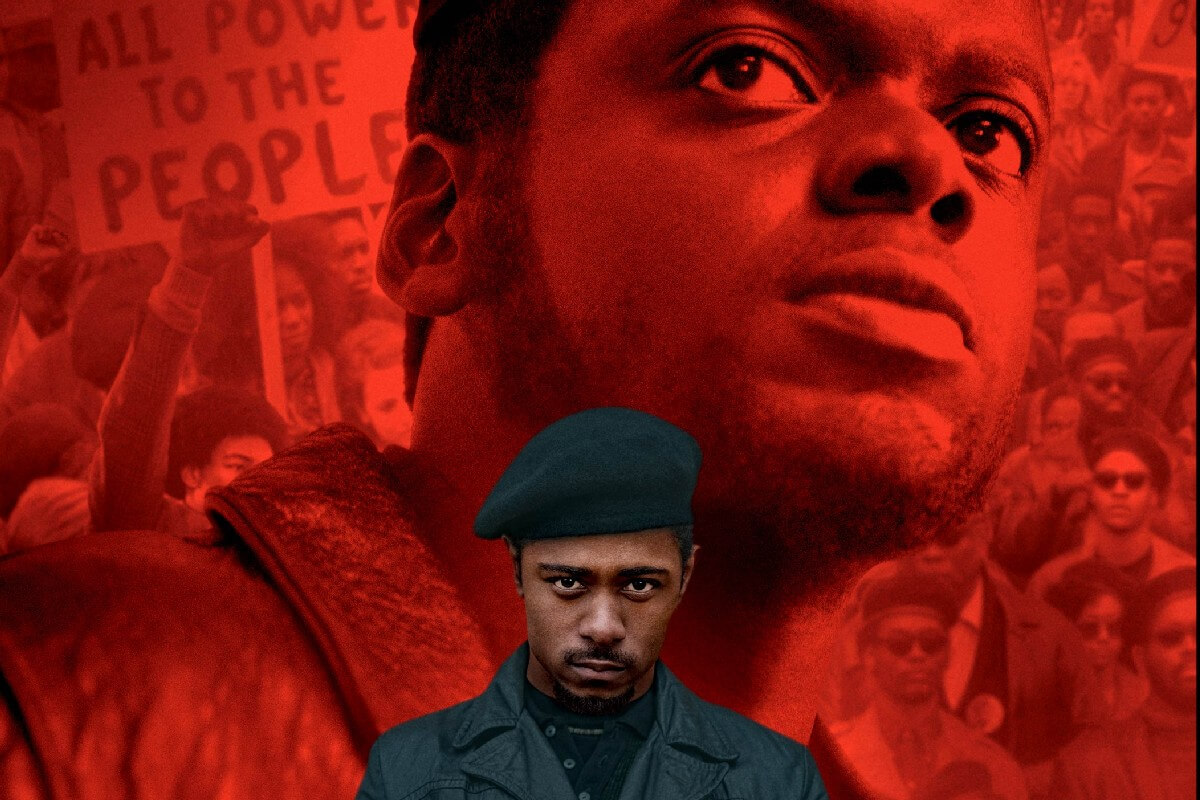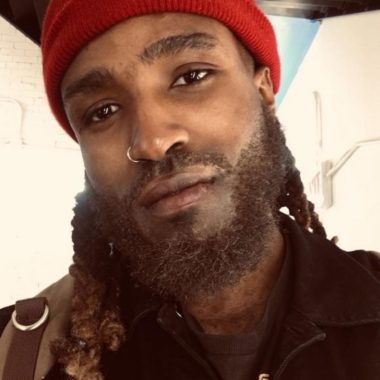“War is politics with bloodshed, politics is war without bloodshed.” Fred Hampton’s words are profound and captured perfectly in the new movie about the real Black Panthers, produced by Ryan Coogler, who brought forth 2018’s Black Panther.
Judas and The Black Messiah follows the life of the dynamic teen activist Fred Hampton, who rose to become the Chicago Black Panther Chairman. Hampton was assassinated in his bed by the FBI and police at the age of 21, with the help of Black FBI informants, notably William O’Neal.
Judas and The Black Messiah exposes the realities of police tactics and government-sponsored assassination attempts on the Black Panther Party during the 1960s.
The film stars actor Daniel Kaluuya as Fred Hampton, best known for his role in Jordan Peele’s genre resurrecting thriller Get Out (2017). Kaluuya portrays Chairman Fred with an eerie exactness, a marker of his gift as an actor. FBI informant William O’Neal is played by Kaluuya’s Get Out co-star, Lakieth Stanfield.
While Kaluuya’s portrayal of Hampton’s self-sacrificing nature and dedication to Black liberation was spot on and moving, it is perhaps Stanfield’s embodiment of O’Neal that is most jolting. Lakieth Stanfield’s portrayal of William Oneal is undeniably gut-wrenching. He shows us a man dancing with maddening ambivalence, in between worlds as both an FBI informant and a faux Black Panther.
Visually, the film is stunning to watch. Judas and the Black Messiah features cinematography by seasoned cinematographer Sean Bobbit (Twelve Years a Slave). Bobbit’s use of perfect framing and deep shadows captures the everyday-ness of the characters beautifully and dramatically—realistic enough to feel relatable, yet so masterfully constructed it is without question, fine art.
The portrayal of women of the Panther Party highlights the delicate balance many Panther women had to keep, as mothers, girlfriends, activists, and for some, armed defendants of Black neighborhoods against police violence.
While actress Dominique Thorne’s performance as Judy Harmon is deserving of praise for her portrayal of a Panther heroine, the role of Deborah Johnson, played by Dominique Fishback, as the mother of Hampton’s son, adds to the representation of Black femininity within the Panther Party. The film displays the diversity of Panther womanhood and avoids dangerous portrayals of Black women as only workhorses via harmful masculinization.
The affection between Hampton and his then-pregnant girlfriend Deborah Johnson was a bittersweet and consistent theme throughout the film. There is an endearing quality about the loving pair amidst the chaos of FBI probes and violence. As we come to the end of Hampton’s life, the weight of Panther Party motherhood on Deborah Johnson is very palpable.
Sadly, much about the film is applicable in today’s climate ––– police brutality, injustice, and racial inequality. How much has changed really?
Director Shaka King, in a New Yorker interview, discussed why he felt honoring the history of the Panthers accurately was so important.
“The argument that people make on the other side is that this is a film, it’s a work of art, there’s license. I talked with one filmmaker about another period piece relating to African-Americans. And he said to me, straight up, ‘It’s not my job to teach history.'”
“I think that’s a subjective choice. But you’re talking about a group of people who were deeply traumatized, and to not acknowledge that trauma just to make a piece of entertainment is fucked-up to me.”
William O’Neal truly is the Judas of Fred Hampton’s impactful young life— if all skin folk ain’t kinfolk was a person. Themes of betrayal by various Black characters are noticeable throughout the film. In fact, in the raid that ultimately ended Chairman Hampton’s life, 5 of the 14 police officers were Black, the other 9 white.
Fred Hampton’s exceptional charisma and oratorical strengths helped him garner support from opposite and diverse racial interest groups. By 1969 Hampton had formed a rainbow coalition of anti-imperialists, poor white confederates, anti-war groups, and notably the Puerto Rican gang turned activist group, Young Lords (Jose Cha-cha Jimenez). Due to his rising influence, Hampton was feared by FBI Director J. Edgar Hoover, who labeled the Black Panther Party the single greatest threat to America.
Looking back just a few decades, the parallels between Black Lives Matter and The Black Panther Party are quite obvious. Then, there was a purposeful conflation of the Black Panther organization with groups like the KKK. Today, white conservatives engage in similar conflation tactics with Black Lives Matter and unrelated groups.
Opponents of the Black Lives Matter movement regularly spout obtuse critiques, in an attempt to plunge the movement into a war of semantics (but all lives matter).
Interestingly, though Fred Hampton would regularly chant loudly, “white power to white people, brown power to brown people, yellow power to yellow people, and Black power to Black people,” he was still murdered. Like Hampton’s predecessors Dr. King and Malcolm X, his murder proved how Black liberation is constantly met with violence by white supremacy, no matter the approach. However, for white Americans, no matter the approach can mean something entirely different –– daily microaggressions to assassination attempts at the U.S Capitol.

While watching the climax of the film, the sound of gunshots can be heard blasting through Hampton’s apartment. The thought of a 24-year-old Breonna Taylor comes to mind, a reminder of the ongoing fight against police brutality and racism in America.
Fred Hampton’s words live on with lasting potency as a reminder of why he believed in the people and equality. [I am high on the people, revolutionary love… I am a revolutionary, I am a revolutionary] —Chairman Fred.
You can check out Judas and the Black Messiah now streaming on HBO Max. The movie has just been nominated for numerous Academy Awards.










